|
"I love working on wood," said Pavlina's cousin, kneeling before the door I had broken. I stood over him, watching, feeling useless and grateful. It was two weeks after the late night in the middle of the week when I'd peeked into my kids' room, seen the state of it, and snapped. All I wanted to do was watch a cartoon with them and put them to bed, but Ellie had been papier-mache-ing. I had to get out of their bedroom and into the kitchen to find a sponge, but there was so much junk behind the door that it wouldn't open to let me out. At my wits' end, I shoved the door. "Well, here's your problem." Pavlina's cousin tapped a knot in the wood next to the hinge. "This was a weak spot. The guy who made the door should never have used this piece for this part of the door." I would later tell Pavlina I'd done a good job of eliminating weak spots in our apartment. Her cousin returned from the bathroom. "The door in there sticks. Do you want me to go get my circular saw and take a couple of centimeters off the bottom?" This was after he'd glued the girls' door back together, screwed a metal mesh onto it, replaced the hinge, and prettying everything up with wood-filler. I'd spent two weeks of fruitless searching for someone to do this for money. Helping my cousin-in-law repair my kids' screen door, I reflected that no paid handyman would ever have put this much care into the work. All my cousin-in-law wanted was pizza. It was awful, by the way. He likes pineapple and pickle on white sauce. But my point is that you can go through professional channels and get expensive, mediocre work done, or you can go to your human connections and get an event that's worth writing about. What cousins-in-law do you know? *** It was a very busy February.
The World's Other Side is now available for pre-order on Amazon. It's been edited, typeset, scrubbed and polished. It's even gotten its first review. It launches on the 29th, so go pre-order it. If you want to read something right now for free, I've begun the serialization of my novella Petrolea. It's about love and environmentalism in a nest of robot dragons. I also changed my Patreon: serializations are available to everyone for free, available to three-dollar patrons a week early, and twenty-dollar patrons get access to all of my self-published fiction. So if you want to read The World's Other Side and Petrolea right now (as well as three other novels), go for it. In the mean time, I'll get on with revising Wealthgiver. *** And I read some things Going Infinite by Michael Lewis - This book chronicles the sudden rise and suddener fall of Sam Bankman-Fried with an air of aggravating indulgence. Lewis presents this emotionally stunted weirdo as a quirky savant, perhaps so elevated above the human herd that he can't really be blamed for stealing a bunch of money? Come on. My favorite quote: "You ask this kid for a steak and he sticks his head up the bull's ass." Black Ops by Ric Prado - A fun book to read alongside a John le Carré novel. The tones are totally different, although what they actually do is much the same. Prado is a genuinely interesting person. Although of course it would have been better if he'd revealed more vulnerable secrets, I suppose he said as much as he could. Existentially Challenged by Yahtzee Croshaw - I enjoyed Differently Morphous, the first book in the series. Listening to this sequel, though, I was reminded of a Soviet-era publishing joke from Arkady Strugatsky: "what do you call a telephone pole? A well-edited pine tree." Existentially Challenged is well-edited indeed, stripped of any joke or plot element that might offend its publishers' political sensitivities. Either that or the author did a rushed and sloppy job. Escaping the Rabbit Hole by Mick West - I read this book as a field guide to some of the more popular conspiracy theories of the 2000s, and as an autobiography of Mick West. As always, I appreciate testimonials, in this case from ex-conspiracy-theorists who'd rejoined the real world. As far as how to talk someone out of a conspiracy mindset, all I can say is that the techniques in the book haven't worked yet. Maybe I need more time. All Men Dream of Earthwomen and Other Aeons by John C. Wright - a rich and generous stew of stories, tied together by a theme of transhumanism and its downsides. My favorite story is "The Last Report on Unit Twenty-Two," where I think that theme shines brightest. Imagine an asteroid-mining cyborg with a cloned human brain, sculpting interplanetary rock into little copies of itself: babies it is incapable of having. All Things Wise and Wonderful by James Herriot - these books are a tremendous comfort to me. Herriot seems to have tried to tie his vet stories into stories of his time in the army, which didn't work very well because he clearly wasn't interested in his time in the army. He was interested in making sick animals well and miserable people joyful, so he mostly wrote about that. I'm glad he did. Piranesi by Susanna Clarke - I'd been waiting for enough time to pass that I could re-read this book. It's easily the best new fantasy I've read. By describing a life filled with meaning, it delineates life without, and traces a path to one from the other. One Bright Star to Guide Them by John C. Wright - I started this thinking it was a novel. It isn't. It's a novel's worth of plot condescend down into an accelerated summary, with most of the major plot points taking place off screen and related by the main character in his conversations with other characters. I can see what Wright was doing, but I wish he'd just told the story. Anyway, the story itself is fantastic. How do you drive away evil? What do you do once you've grown up? Wright actually answers those questions, and answers them well. Queen of Angels by Greg Bear - Way back in high school, I listened to this audiobook narrated by the prolific genius George Guidall. He's still the best thing about this book, which I wouldn't have revisited except that a reporter for the Economist mentioned it. I thought I might have missed something the first time around, but no, it's still just as dull and pointless as before. There's a vague sketch of a plot and a vaguer glimmer of a theme. Something about where evil comes from? You could easily read the first and last three chapters and get everything important. Dungeon Meshi - Every Thursday my life is a little brighter because there's a new episode of Dungeon Meshi. I describe the premise like this: "in order to cut costs, the leader of a dungeon-crawling team doesn't pack food. Instead, they'll eat monsters." It's like watching an NHK documentary about cooking, and the creator really knew her biology. My only complaint is the gore, which means I can't watch this show with my kids.
0 Comments
The serialization starts now on Royal Road and (last week) on my Patreon.
There was an old pig in his den, Who had finished his work once again. So he quietly sat With his comfortable cat, While he rested his brushes and pen.- Pigericks by Arnold Lobel So there we were, driving back from Lyulin, our new kitten meowing in the back seat, ready for anything. It was that gray, chilly season between the last leaves and the first snow, when there's too much to do and your head is buried either in your work or in your pillow, trying to get some goddam sleep done before the kids fling themselves down the stairs and tear apart the living room. But we had made a promise. Back in August, as the scent of the fig trees drew us home from the beach, Pavlina and I told Maggie and Ellie that if they kept their room clean for six months, they could have a cat. Partly it was to head off their grandmother, whom Pavlina distracted with tales of a kitten with a Christmas ribbon around its neck. And there was that family of stray cats living under our veranda and licking the yogurt out of my breakfast every morning. Finally, Pavlina and I had decided that we had grown strong enough to welcome a little chaos into our lives. With some trepidation, we bought the litter box, the dishes, the scratching post. The grandma wanted to buy a kitten from the mall, but Pavlina held her off while researching cat shelters. There was a single one in Sofia that seemed to be working, and they wanted three interviews, an essay, and photographs of our apartment. "Why is it better to get cats from a shelter?" asked Maggie on the way home from interview number one. The first answer that came to my mind was "because we're good Democrats," but that was neither helpful nor true. The second was that I thought it was icky to buy a live mammal at a store as if it were a video game console. But I was also creeped out by the way the shelter pretended we were adopting a child. So where did that leave me? "Uh," I said, "something about stray cats being selected for their intelligence and health, rather than their looks? And hey, remembered the Russian fox experiment? You can select the kitten that's most affectionate, just like that professor did." Secretly, I hoped for a gray tabby, because they're my favorite. We pushed ahead with the shelter, and got up to interview number two before Pavlina found an old lady in Lyulin with cats in her basement. Maggie and Ellie chose the name "Cookie" back in the summer. Cookie that Cat has quadrupled in size since we got him. The best way to keep him out of your yogurt is to throw something small across the floor so he'll run off to kill it. He watches me while I pee, which is weird, but yesterday evening he sat on lap and purred while I read. Cat achieved. *** This was a big month. I've decided that Fellow Tetrapod needs more work and I've pushed its publication back. In the mean time, I'll serialize an old novella of mine, Petrola, which is about love in a nest of robot dragons. Look for it at the beginning of March on my Patreon and my Substack. I'm also working on a short techno-thriller called The Barricaded Man, for which I've been doing research on IT sabotage. Most importantly, The World's Other Side finished its serialization and is on to the next step: publishing. The World's Other Side will be published on March 29th as both an ebook and paperback. Pre-order it here. ***
And the books I read: Early Adopter by Drew Harrison This is a story like a key. It goes in, it turns, it opens a door. A lonely young man despairs of dating apps and pays for a new "AGI" digital girlfriend. Yes, there's a slider for bust size, and yes, there's a discussion of Searle's Chinese Room. As our hero spends time with this speaking image, he wonders if his feelings might be real. What would he do if they were? How to Talk to Anyone by Larry King I found this book while doing research for a class I'm teaching on interview technique. and I found it to be both use and delightful. Larry King's advice is pretty good, but far better are his personal anecdotes about for example, his first day on the job, interviewing an anxious flying ace, and delivering speeches to the mob. It's tons of fun. What Do You Care What Other People Think? by Richard Feynman This is another memoir-shaped text formed from Richard Feynman's letters, essays, and public speeches, similar to Surely You're Joking Mr. Feynman. It's clear that the good material all got into Surely You're Joking, but Feynman's B-roll is still worth the price of admission. My favorite part was "Mr. Feynman goes to Washington," which was about his work on the Presidential Committee investigating the space shuttle Discovery disaster. Feynman is both the only one who does and does not know what's going on there. The Discreet Charm of the Big Bad Wolf by Alexander McCall Smith The core of this book – the mystery and the personal dramas – were as good as ever, but this book missed something of the sweetness of the previous three, especially around the middle, when the ennui rose high. The modern world with its microaggressions and canine medical justice looms over the lives of the small, kind, bewildered characters. What's the world coming to, they themselves, then look guiltily over their shoulders. Are they allowed to ask that question at all? Cocktail Time by P.G. Wodehouse My favorite Wodehouse book so far. Jeeves and Wooster stories are all a bit the same, but Cocktail Time isn't part of that formula. The good-natured uncle trying to solve everyone's personal problems is also the prankster who's creating them. And there's a bit more kissing, which I appreciate. The Trees in My Forest by Bernd Heinrich Along with The Wood for the Trees and The Hidden Lives of Trees, this book ranks second in the micro-genre of "elderly scholar musing about trees." The ecology and conservationism are all what you've heard before, but I appreciate the economics of forestry and the evolutionary biology of very tall plants. Bridge of Birds by Barry Hughart I'd forgotten pretty much everything about this book since I read it back in high school, so re-reading it now was an unalloyed joy. There's a soppy ridiculousness to the whole thing – as when our heroes, pursued by the legions of a cruel and deathless tyrant, leap from a cliff onto the only stretch of shoreline not bristling with pointy rocks – overlaid with a firm grip on the human condition – as when the waves roll back and we discover halfway down that there are rocks down there after all. How can our heroes possibly survive this one?? Effective Editing by Molly McCowan I read this book in preparation for my own editing project, and it did help. It does a good job at introducing editing on three levels: book, scene, and word. I got the most out of the scene-level advice, especially about how to determine what you should cut. The author sells her own services a bit, but not to egregiously. Project Hail Mary by Andy Weir My second time with this story. I chose the audio book as a treat over the Christmas vacation, and it was one. Hail Mary perfectly balances humor and pathos, scope, and stakes. This time, although I already knew about the mystery, so I could sit back and enjoy a story about man who chooses friendship instead of despair. So there I was, bent over sideways, lugging a duffel bag full of booze through Lozenets at 1:30AM. It was two weekends before Christmas and not a taxi was to be found in the town of Sofia. We'd been forced to drive to the party, which meant we had a car to drive home. "We'll get a taxi and pick up the car tomorrow morning," said Pavlina. "But we should put the booze in the car first." It was a duffel bag branded with her company's logo, filled with everything her employees hadn't drunk that night. I switched it to my left hand and bent the other way. I used to hate parties like this. Honestly, I still don't like them much, but I no longer hate myself for checking out after a couple of hours to sit in the corner and read with my earplugs in. One mistake I did make was to arrive at the party hungry. I'd taken too many cornflakes chicken things with my whiskey and now I felt mildly sick. Pavlina's assistant had found a good source for her merch. The duffel bag creaked under the weight of undrunk drinks, but it did not explosively fail me on that long walk. Apparently there's a section of Roman wall there, but I didn't notice it. I was focused on getting that duffel home. We'd be stocked up on wine. I'm rarely in the mood of beer, but it keeps, doesn't it? Given how heavy this thing was, we should have a supply until spring. My shoulder hurt and snow gently fell. "How about I drive?" I had my wallet with me and it carried my American license. Adjust the mirrors, push the seat way back. But this isn't a story about driving. It's about that beer. I decided to leave the duffel in the car that night, but the next morning I hauled it up the four flights of stairs and through our apartment to the balcony. It was only there that I opened it and discovered that was almost entirely full of Moretti Zero. Non-alcoholic. After one last spate of writing, research, and conlanging, I put Third Realm to bed. The heart of the story is there, and now it needs to rest while I forget about it and work on other things.
Such as Fellow Tetrapod! I am now getting my claws into the final revision of this oversized manuscript, and I'm cutting. If you want to tell me what you want me to discard and what to keep, there's still time for you to beta-read the current draft. And The World's Other Side is nearing the end of its serialization. It's time for me to start getting it ready to publish on Kindle Unlimited, and more importantly, advertise it. So here's a question: how do I introduce this book to potential readers without feeling gross about it? *** And I read some. Actually, I read a lot. A lot. It was a good vacation. Dirk Gently: The Long Dark Teatime of the Soul (BBC Audio) by Douglas Adams Listening to this radio show was a good way to make me want to read the original. Humor that works as narration fails when it's said aloud by a character. On the other hand, the plot in the dramatization emerges more starkly from the jokes and digressions, but on the third hand, jokes and digressions are the whole point of a Douglas Adams story And I did not appreciate the Hitchhikers Guide references. The Russia House by John le Carré I love how real John Le Carré novels are, and this one was so real it was spooky. During the small window between the beginning of Gorbachev's reforms and the end of the Soviet Union, a drunken, womanizing reprobate of a book publish receives a manuscript for a novel written by a Russian physicist. The book contains military secrets - turns out the red army isn't all it's cracked up to be. What the author is really interested in, however, is whether his book will be published. That resonates. Swan Knight's Son by John C. Wright A tale of knightly chivalry transplanted into 21st century America. It mostly works, and at times, such as our knight's battles with elves by word and sword, it's great. The greatness is hampered by a terrible lack of proofreading (the use of "woses" in the singular was a mistake) and Wright's auto-plagorism. Why did he re-use mermaid girlfriends and villains with impenetrable body hair in two separate series? Surely he can come up with other monsters. These frustrations aside, I did enjoy the book. I'm saving the next one for when I feel sad and need some encouragement. Thank You, Jeeves by P.G. Wodehouse Jeeves takes a break for Bertie, but the young idiot's problems grow so large that Jeeves can no longer in good conscience avoid solving them. A house is burned down, a marriage is arranged, and in the end, there is no other employee whose sentences Jeeves would half so much enjoy completing. Agatha H. and the Siege of Mechanicsburg by Phil Foglio I wouldn't have bought this, but the audiobook was included in my audible subscription. I read the Girl Genius webcomic, and I did enjoy this reminder of the plot from three or four years ago, some of which I'd forgotten. I admit the romance was nice. The reader was very uninspired, though. The Foglios and their friends do a much better job with the voices in their podcasts. These are ridiculous larger-than-life satire monsters, and they should sound ridiculous. The Engineer by Will Wight I read this book during a Christmas party, so I appreciate it for the relief it afforded. But I have to say this second book in the series repeats the problems of the first. The beginning is fast-paced and exciting as the crew of the Last Horizon rescue/recruit their engineer, but then we hit a wall. It's like the book ends and we begin a new book building up to a battle with an enemy from the engineer's past. The whole thing feels clumsy and bloated, like it followed its outline too closely and was published before it was ready. The Aye-Aye and I by Gerald Durrell This is one of Gerald Durrell's last books. It's written by an old man with unreliable hips and a younger wife, with a tendency to chastise the reader for not doing more to protect vulnerable species. Between all that, there is enough humor, beauty, and animal behavior to keep the you going. The Sword of the Lictor by Gene Wolfe I don't have the skill to do justice to this book, even in summary. This was my second reading, and only now did I understand what actually happened between Severian's work in Thrax and his time as a wandering outlaw. I have a friend who's read these books several times, and when we last spoke he quoted a line from The Sword of the Lictor to help me think about a personal problem. It did help. The Innocents Abroad by Mark Twain Not enough character development. But seriously, I would have liked a bit more editing between me and Twain's travel diary There were occasionally bouts of deep consideration (such as when he visited Golgotha), and real humor ("bring us a fresher mummy") separated by long stretches of humdrum vacationing. SUBSCRIBESo there I was like a professor at Durmstrang, my pumpkin juice heavily laden with rakia. The brandy came in swing-top bottle in a fabric sleeve done up to look like a little suit. It was a present from my wife's cousin Kostadin, and it gave my pumpkin juice the aroma of grapes and enough kick to put a hole through the back of my head. I sat back in my chair, no longer cooking, nor worried about cooking, deeply and profoundly thankful. The pumpkin juice was a byproduct of the pumpkin pies, which had gone into the oven at the same time I talked to my friend Paul in Japan for the first time since he went into the hospital. Bone bruises, he told me, very painful and debilitating, but treatable. It was such a relief. I ground cloves in a hand mill and let go of the worry. Then, the potatoes. 8 hours later, our guests were eating mashed potatoes, sweet potatoes, cornbread and cranberry relish, brusslessprouts. The cider and the gravy were done and so was I. I took just a minute to sit with my friends and drink a couple of slugs of hard pumpkin juice before I set to carving the turkeys. What did we even talk about? At the moment, all I can remember is a taste like stepping outside after the first frost, when the tannins in the air hit the back of your throat and the cool fills in your lungs. All that I remember is I didn't tease Kostadin nearly enough about those turkeys. That story begins at my daughter's birthday at the beginning of the month, when Kostadin invited me to his wife's village to help him butcher and barbecue a quarter of a cow. That adventure didn't end up happening, but it got us onto the subject of turkeys. Kostadin's father-in-law knew someone who could hook us up for Thanksgiving. I was all for it. Put us down for two turkeys! "Two? Who are you feeding? The whole neighborhood?" I counted off the people we usually invited to Thanksgiving – let's say fifteen. We'd need two turkeys to feed that many people. "You don't know about this guy's turkeys," said Kostadin. Gesturing like a fisherman, he described a bird the mass of his daughter. Like an ostrich it would be, but more flavorful. We would not have to kill the beast ourselves, but we would have to gut it and scald it, pluck it and singe off the pin-feathers with a blow-torch. It would be a savage adventure, like riding with the Huns. I summoned up my courage and accepted the mission. Both of us deserve some fun to be made of us. I didn't have to catch or pluck the turkeys, or even drive with Kostadin to the village of Izbor to collect them. He brought them to my house all ready for the oven. But he doesn't get off lightly either, because the two birds together wouldn't make half the mass of his daughter. They were, let's say, "rangy," with more meat on the drumsticks than on the breast. The good news was that they could both fit in one oven at the same time, while I borrowed Pavlina's other cousin's oven downstairs for the full-sized turkey I bought at the grocery store. Here's the thing, though. Kostadin's turkeys were very good. The store-bought bird tasted at best like gravy and at worst like wet paper towels, but the ones from Izbor had their own flavor. They tasted like animals that had lived lives, eaten what they could find, run when they wanted to run. I appreciated them, and Kostadin, and even my mother-in-law when she told me the food this year was much better than last year. She was right. I carved the turkeys and made another batch of gravy and whipped the cream for the pies. I drank pumpkin juice with rakia and hot apple cider with rum. I talked with my friend Emil and Maggie's friend's dad Angel. About, I think Georgi Gospodinov? Go look him up. He's supposed to be good. The guests laughed. Our kids washed back and forth across the apartment. Nothing much was broken, and when it was time for me to walk Emil to his bus-stop, my legs still worked. It's been a year of building and expansion. Improving my cooking, improving my work-out routine, meeting the various crises and dramas that make life work writing about. There's you, who graciously read what I've written, and want, I hope and trust, more. There's still more to do, and I'm grateful for that too. SUBSCRIBERight. What have I done this month? I've been working hard on Third Realm, researching, writing, conlanging a whole lot, and drawing. Every Wednesday, I ask research questions on Substack and Royal Road, so if you want to educate me on medieval history, follow me there. Speaking of Substack, some writers there asked me to give some writing advice. I thought about it, and responded "Write, Reflect, Ask." I think it's good advice even if you're not a writer. Read the whole thing on patreon or substack. On Patreon, The World's Other Side has passed the one-half mark and is now conveniently collected here for your reading pleasure. And remember Fellow Tetrapod? I'm planning to start its final revision after Christmas before self-publishing it, and feedback would be tremendously helpful. Please tell me what you think. You can also find the whole book on Royal Road. *** And I read some things this month. The Satyricon by Petronius Reading the ancient Roman fragments gives the impression of a modern novel written in some unknown European country. Somewhere raucous and cruel. It tells part of the story of Encolpius, a satire of epic heroes like Odysseus and Aeneas, who was tragically cursed by Priapus, the god of erections. He finds love...with an unfaithful male prostitute. He finds fortune...by stealing it. He visits the realm of Pluto...or at least a wealthy freed slave obsessed with death and conspicuous consumption. Lots of slaves get beaten, lots of sex ends unsatisfactorily for everyone, and there's too much bad poetry. It's an interesting book, and occasionally even funny. Through Adversity (Worth the Candle) by Alexander Wales I came to this after reading Wales's later books, Shadows of the Limelight and The Metropolitan Man, both of which I recommend. I do not recommend Worth the Candle. It's the first novel of a teenage boy. These thoughts and feelings are so big that nobody has ever had them before! But I'm glad to see the author got better. Once again: Shadows of the Limelight. Differently Morphous by Yahtzee Croshaw I listened to this on Audible and I'm frankly surprised they green-lighted it. Pleasantly surprised, because this is a book that criticizes Wokeism. The criticism is nuanced and thoughtful, pointing out problems and solutions on both sides of the Culture War, which is why I suspect it got so many bad reviews. For my part, I appreciated this book a great deal. We begin following along with a girl as she is inducted into the secret magical organization within the British government, and then a lot of unexpected things happen. The protagonist is not the Chosen One, the jerks are not the villains, and some demons really are demonic. I should also mention that Croshaw does a good Shoggoth, and his Dr. Diablary was a joy to hear. There's a sequel I'm eager to read. The Gulag Archipelago vol. 1 by Aleksandr Solzhenitsyn This was a bit of a slog. I probably wouldn't have made it if I wasn't listening to the The Gulag Archipellago as an audiobook, but I did get through it and it was useful. The Gulag Archipelago is basically subjective - a huge collection of anecdotes about the lives of political prisoners of the Soviet Union. The interrogator making a date with his mistress while you writes his reports for him. The man who was the first to stop clapping after a speech by a Party boss. The Swede whom the Soviets thought was a spy and the Romanian who was actually a spy. "Things were said innocently - but they weren't listened to innocently." Uncertain Placement by D.J. Newman A gently funny collection of images and text, appreciating and poking fun at speculative biology, museum curation, and us lovers of both. "As Gary stared into the tadpole’s unblinking eye, he couldn’t help but see the uncomfortable metaphor for postponed maturity. Profoundly shaken, Gary returned to college and completed his degree." There was a bird's nest in the cemetery in December in 2020. I pointed it out to Maggie. It was in a hole in a tree trunk, just a few feet off the ground, and we could look into it. We could watch the mother and father tit flying in and out while Pavlina's family ate sugared wheat and cried at the wall of niches where the ashes were interred. Baba Zvezda died during the Covid Pandemic at the age of 99. During her life, her house expanded, first to two stories, then to four as her older daughters and grand-daughters married engineers. Her younger grand-daughter and her husband became doctors. Her own younger daughter and adult granddaughter lived with her in the apartment her son-in-law built for them. Baba Zvezda settled disputes about the garden guided by her dreams and aided in the waking world with a shovel. She made sure her younger daughter, Danche got her medication for paranoid schizophrenia. For the past year, Pavlina had been trying to forgive the old matriarch for leaving her with this current mess. On the way home from the funeral, I shared a car with Rumi, Danche's adult daughter and I commented on the beauty of the old cemetery, with its trees and bird's nests. "You must think it's messy and over-grown," said Rumi. "It's not at all like American cemeteries." I actually had trouble understanding her. When you're speaking a foreign language, you lean heavily on your expectation of what the other person should say, but here it seemed as if we were having two different conversations. Danche and Rumi were now alone, directionless, with very little income, and at least one of them with unmedicated schizophrenia. "You killed my mother," Danche told her grieving niece, the doctor. She thought I snuck into her apartment to steal her father's documents, and told the story so convincingly that I felt guilty. Then Pavlina asked them if her grandparents (Danche's sister and brother-in-law) could move onto the first floor with them. Pavlina's grandparents have respectively bone spurs in the hips and senile dementia. It takes them an hour to climb the stairs to our apartment. Can they move in with you? "You think you can trick us into selling our land? This whole house is built on our land." Red and black threads began to turn up on the stairwell - witchcraft - and my younger daughter's bike went missing from our shared basement. The cruelty of schizophrenia is the way it turns you against the people who would help you fight it. Danche is related to doctors, but she doesn't trust them to speak to her, let alone give her medication. An old lady in her seventies, should be surrounded by her family, but Pavlina and her cousin won't let our kids on the first floor, because what might she say to them? A few years ago, before all this, Danche left milk boiling on the stove and forgot about it. I smelled the smoke, went downstairs, and took care of the problem. Now she keeps her door locked. Pavlina has done more than forgiveness exercises. She's spent the last two years looking for ways to either (a) build an elevator onto our house or (b) move her grandparents into an apartment building with elevators. Last week, my mother-in-law came home with a bottle of champagne and a signed contract with a construction company. Yesterday, she and Pavlina went to the neighborhood police to respond to an accusation of illegal parking and report a death-threat uttered during an altercation on my older daughter's birthday. Next week, we'll have security cameras installed in the basement. This isn't a story about what ought to happen, but about what does happen. We move, as Pavlina likes to say, over problems, under them, and through. *** I keep writing. The World's Other Side is now coming out now on Royal Road and Substack as well as here on Patreon. Which platform do you like? I'm going to do some more promotion in November, and we'll see if I can get some more subscribers. Third Realm is moving, even if I'm not ready to post much from it yet. I had to cut back on my conlanging habit, but you might have noticed the tweaks I made to the map and place names. And here are some Central European megafauna, part of a subplot that came to me in a dream. Oooh! And I read some things:
The Darkness That Comes Before, by R. Scott Bakker. This was my first re-read, or rather re-listen-to, and I almost didn't go through with it because of the narrator. He did a good Esme and his Cnaiür was okay, but too often he just didn't understand the words he was reading. I kept listening because they were some good words: "and always, his own inarticulate hand drifts over the pool and, in a quiet moment of insanity, touches it." The Waves Arisen by Wertifloke A Naruto fanfic recommended by a friend after I complained about delays in the release of Jack Voraces's excellent Harry Potter and the Methods of Rationality audiobook serialization. The Waves Arisen scratches one of the same itches as HPMR (playing with the rules of the source material's magic system), but with a disappointingly shallow insight into the characters. Only Naruto himself got some depth, and the author glossed over some big interesting questions (what are the tailed beasts and why do they want what they want? How can njinja and non-magic "civilians" coexist?) in favor of magic ninja battles. They were fun battles, but I'd recommend Will Wight's Cradle instead. The Coming of the Terror in the French Revolution by Timothy Tackett Tackett uses letters written by normal French people during the Revolution to summarize its history and make the point that the new government's reign of terror was caused by its own members' fear and insecurity. Fair enough, although I would have liked more and longer quotations from the letters themselves. The writers of the letters have clearly become real people to Tackett, but they weren't given enough time on the page to become real people for me. There's an episode where Nicholas Ruault sees an old friend on a cart being carried to his execution, and leans against a wall, helpless to stop his tears and terrified that someone will see him, and have him carted off too. That's something that needed to be in the first person. Orbital Claims Adjuster by Andrew Moriarty I read this one (the second in the series) without having read the first, which was fine. The setting is interesting: a collection of abandoned asteroid mining companies by have to cobble together a civilization before their tech all ages beyond the point of repair. The main character is interesting too: an accountant mis-cast as a space-pirate/spy. The plot didn't really come together, but it entertained me enough that I'll probably read the next book. I do warn the reader, however, there is not nearly enough claims-adjusting in this book. Hardly any at all, in fact. The Night of Four Hundred Rabbits by Elizabeth Peters I love the Amelia Peabody mysteries and I like Vikky Bliss, but this book was sub-par Peters. Part of the problem was that the main character is much more passive than Peters's other heroines, and spends most of her time as a victim. The other problem is that Peters doesn't seem as interested in the Aztecs as she was in the Ancient Egyptians or the Medieval Germans. The love doesn't shine through. The bad guy and the mystery are okay, but muddled. This was one of her early books, and Peters didn't have her craft figured out. So there I was, buying a plecostomus. Now, I know what you're thinking: isn't it more accurate to speak of genera Hypostomus, Pterygolichthys, and Panaqolus? You have a point, but they're all crusty fish that suck on the insides of aquariums. You know what I mean. For five years I kept an aquarium here in the Balkan Tower of Matriarchy, but it never thrived. In the US, I could go to an aquarium store and say "do you have anything that eats algae? You know what I mean." In Bulgaria, I didn't ask questions like that, and after the last fish died, I never replaced it. I just let the tank sit there, filter off and the heater on, getting browner and browner. Finally, in the run-up to my 40th birthday, I realized that this was depressing. I resolved to fix the problem. I started by googling aquarium stores and drew up plans to incorporate shopping expeditions into my schedule. The pet store at the mall? No, they stopped carrying aquarium stuff. The one on Doctor's Garden? If I picked Maggie up from school on Tuesday afternoon after swimming and walked her home...let me check my calendar. Then Maggie said, "What about the aquarium store across the big street on the other side of Billa? They have budgie food and little turtles." I dropped my complicated plans and just took a walk with her. The store to which she guided me wasn't on google and had a small shopfront, and yet there were fish inside. The owner had a plecostomus and an air-stone and gravel, if only I could ask for them. "Do you have small catfish that cleans the walls?" "Do you have small rocks for the floor?" I sounded more than a little like John Cleese commenting on his hovercraft, but I did manage to nail the plural of "guppy."* "Will baby guppies enter the filter?" I asked. The owner assured me they would not. "But I worry myself that they will...uh." Death, I thought, but that's a noun, not a verb. But she knew what I meant. When I told the owner that all my previous fish had "killed themselves," she responded readily enough. If they died over a long period of time, you probably fed them too much and poisoned the water. This 12-gram packet of flakes should last until the end of the year. When I called my old, dead tank depressing, I should also have said it was depressed. The tank made me sad, which made me not take care of it, which made me sadder. The same could be said for my Bulgarian skills and my relationship with my neighborhood. Not to mention my daughters. They all need help to get to the point where they can thrive. Pavlina named the plecostomus Stegosaurus. *** The World's Other Side has now won over a single follower on Royal Road and none at all on Substack. Well, this was supposed to be an experiment to see how a serial would do if I just let it run without spending too much time on advertising. Let's see what October brings. What I really care about now, though, is Third Realm. I have a growing number of shiny new scenes about these frustrated architects caught between magical revolutionaries and scornful demigods, and I'm enjoying the hell out of it. I have been somewhat obsessed with the language of this project, as you can see. And I got some lovely fanart. This is Ravestar's Ringbearer from Fellow Tetrapod.
I've been getting lots of helpful questions and advice about Fellow Tetrapod, which I will put to use when I begin its final revision this winter. If you'd like to read it and tell me what you think, you still have time. *** And I read some things Extraordinary Popular Delusions and the Madness of Crowds/Confusión de Confusiones by Charles Mackay and Joseph de La Vega. Apparently this book is something of a classic among investors. I don't know about any of that, but MacKay's stories (published in 1841) and de La Vega's (1688) were a lot of fun. Aristocratic gambling addicts, bears, bulls, and butterflies, carriage accidents arranged by desperate ladies. A hunchback who rents himself out as a writing desk to frenzied speculators. Great research. Sovereign Mage by Inadvisably Compelled It's better than the previous book, and it did wrap up the series, but it still didn't rise to the level of book one. There were interesting questions there about when caution becomes paranoia and why you can't just turtle up in a bubble of safety. Those questions were answered to some degree, but I wish we'd gone deeper. I'm still looking forward to the author's new series. Europe: A History by Norman Davies I listened to Europe as an audiobook and it took the whole summer. The book is a more-or-less chronological list of snippets from the Ice Age to the mid-90s, giving an episodic, rather blog-like reading experience. But, unlike a 2020s history blog, this one was refreshingly centrist. I owe Davies a lot for his illuminating metaphor about people who see government as a balance, versus those who see it as a tug-of-war. I was wondering about the central role Davies gives to Poland in his story of Europe, but when I got to the end, I understood. I know what happens when you marry an Eastern European, as sure as I know Bulgaria is the continent's best country. Caldé of the Long Sun by Gene Wolfe A profound and splendid book, like sitting on a dusty veranda at sunset, drinking musky white wine. A friend and I disagree on whether this book (and the Long Sun series of which it is a part) is a work of inspired genius, or just very good. I'll help you come to the right opinion with a quote: "Without leaving his chair, he extracted the puff from a drawer on the other side of the room and applied flesh-toned powder delicately to the small, sharp chin he had shaped with such care upon arising." Read it again and ask yourself, "How long was that man's arm?" There's a point where an old man separates his hands from each other, twisting one. I burst out laughing when I read that, and my kids asked me to tell them what was so funny. I realized the explanation would require them to read this book plus the two previous books in the Long Sun series. So, go do that. "George delivered justice with a bottle of burning gasoline..."
My alternate history thriller The World's Other Side begins serialization today. Please go sample the first scene. cover art by Stefan Tosheff So there we were, having a great idea. Pavlina and I were home in Sofia for three days without the kids so we could get some work done. I'd spent the day editing The World's Other Side, working out, and walking to the wrong part of the city to pick up Pavlina. A Ragusea chicken salad for dinner, a glass of cold white wine, and the stage was set for a Zoom call with Simon. Simon Roy is a comic book creator, colleague, and example of the kind of independent creator I want to be. He's also one of my most inspiring friends; ideas seem to shape themselves in the air between us. In this case, we were talking about collaborating with people of strong political opinion ("if they're willing to play, go for it") and the censorious, overheated state of the American conversation in general. Simon reminded me of a comparison I'd made once to a divorce: the Democrats got science and the Republicans got family. And I was like, hey. What if there was a divorce between the gods? The Sky Father and the Earth Mother are separating, and their children — us humans — have to choose whose house we'll go live in. Simon is like, "yeah, but what about characters?" At the time, I had nothing but a vague "…Napoleon?" That's because I was thinking about Europe: a History, by Norman Davies, who describes the opposing conceptions of the left/right political spectrum as the tug-of-war ("we can have no peace until our enemies are defeated!") and the tether ("we can have peace only as long as the center holds."). What if the center does not hold? The next morning, I drew feverish maps of a continent with a large lake at its center. A lake with a tectonic rift forming down the middle. On Saturday, speeding past the downcast faces of the August sunflowers on our way back to the village, I related the story of some dumb Twitter scandal I'd heard about on Razib Khan's Unsupervised Learning Podcast. Pavlina the IT entrepreneur was contemptuous. Don't those idiots know the algorithms they care so much about were written by some programmer after three cups of coffee and an aggravating Microsoft Teams meeting? They're doing what the architecture of the space they're in induces them to do.
I said, "Yes and." Think about the court of Louis XIV. All those cutting remarks and ruined reputations, the fans fluttering before hard eyes, the lives made and lost within rooms, alcoves, and gardens that some person had designed for that purpose. Imagine the architect of the the Palace of Versailles, watching as the court comes apart. We were just passing out of Pernik. The road was squeezed between a pair of mountains, one crowned by a reconstructed fortress. "You're not going to like this," I said. Pavlina's parents divorced when she was in her 20s. "There's this woman. She's standing on the balcony of the palace she designed, and she's watching a volcano erupting into the middle of a thunderhead. Flying boulders, oozing lava. Lightning crashes from the ash that spews into the heart of the squatting storm. "And she says, 'I can't stand it. I hate seeing them fight like this.'" Pavlina's like, "Oh. No, I don't like it. You have to write it." So here we are. Five thousand years ago! Five thousand years ago, the gods of two continents fell in love and smashed their lands together. Now, they are separating. Prodigies lead revolts against angels. Demigods turn their divine gifts against each other. The old Order is on the brink of collapse, and the new Council thirsts for revenge. Some choose sides, but most people just want to know what sacrifices to make so that the gods stop fighting. Architect Nora Soler Harqne s'Aqrasak is interested in floating gardens. She knows sacrifices are pointless, and she's had it with both gods. Together with a mason who should be her enemy, she plans to build a third realm. (I should also mention the life story of Zaha Hadid, the inspiring-by-how-mediocre-it-is Against the Light by Dave Duncan and the inspiring-by-how-good-it-is Mira Nair's A Suitable Boy on Netflix. They're in the list of ingredients as well.) I'm not famous enough for anyone to ask me where my ideas come from, but if anyone does, see the above. I'm reading a lot, listening a lot, talking to lots of different kinds of people, and feeling my big feelings. I don't say, "I'm going to write a parable of our times," or even, "man, if I could do what the Strugatsky Brothers did…" Instead, I notice when a feeling climbs an idea, and what other ideas buttress it. If it all seems to self-assemble like a bunch of magnets, and the result scares me, I know I have to write it. If my wife tells me "you have to write it," that helps. I already have a playlist. *** In other news, I have finished editing The World's Other Side. I sent the cleaned-up draft to Georgi Shopov, my editor. I have a sketch from Stefan Tosheff the cover-artist. We're on track to start serializing this alternate history story on Royal Road at the beginning of October and Patreon at the end of September. Expect more news soon. *** And I read some things: Calde of the Long Sun by Gene Wolfe This is a book that rewards close reading, as you can see from the following quote from page 2: "Without leaving his chair, he extracted the puff from a drawer on the other side of the room and applied flesh-toned powder delicately to the small, sharp chin he had shaped with such care upon arising." There's a point in the book where an old man separates his hands from each other, twisting one. I burst out laughing when I read that, and my kids asked me to tell them what was so funny. I realized the explanation would require them to read this book plus the two previous books in the Long Sun series. So, go do that. Against the Light by Dave Duncan I made a resolution at the start of the summer to spend less time listening to audiobooks. This book helped me do that. It was just barely interesting enough to keep me listening, but never for too long. There's a bit of world-building and events certainly follow one after another, but nothing ever transported me. I don't know if it's lack of editing or if Duncan just phoned this one in. Children of Chaos covers a lot of the same ground and it's a much better book. The Wailing Wind by Tony Hillerman Hillerman writes one scene where a lesser author would have written three. The result isn't frantic or even "gripping," it's efficient. We know what everyone's doing and we can focus on what's important, which is why they did it how they feel about it afterward ("why the hell was I such an idiot?"). I figured out the mystery exactly when Hillerman wanted me to. And it's sad. It's a sad, sweet story, and Hillerman tells it very well. I need to start the Joe Leaphorn books from the beginning. The Marquise of O— and Other Stories by Kleist von Heinrich I was set on these stories by Francine Prose, who raves about "The Marquise of O-" in her delightful "Reading Like a Writer." I have to confess I liked Prose's description of the story more than the original, but maybe that's just because I already knew the secrets. I hoped I'd enjoy the other stories more, but no. It's not just the 18th-century story-telling, or the way people just fly off the handle and set fire to Wittenberg, it's the finger-wagging moralization. Did you hear about the old woman who was told to stand up and move to the other side of a room? Well, she *died,* and her ghost haunted the bad young people who made her stand until they were so terrified that they burned down their whole castle, so there. These are the sort of stories my wife's grandma likes. Nowhither by John C. Wright It's half of a story. The first half. Our hero Ilya Muromets gets his ragtag band of rebels out of the clutches of the evil mulitverse-Sumerians and into apparent safety. Except, where are, like, half the ragtag band? More is going on than meets the eye, and Ilya must come to terms with the mistakes he made in book one in order to transform into the person who can solve the problems of book two. He resolves to do so...and the book ends. Book one (Somewhither) ended on an enormous cliffhanger, but it still felt like a complete and satisfying story. Nowhither doesn't. I like this series and I want it to be complete. I suppose I'll just have to wait. See you next month So there we were, rib-deep in warmish water, leaning farther and farther back as the shadow of the awning shrank. There was a heatwave in western Bulgaria. A whole week of 33, 34, 35 degrees. The sun droned in your ears and the white sky clamped down and bore you to the ground. We went to the swimming pool. Kyustendil has some great pools, and my favorite is at the hotel Strimon. It has sun-shades, there's no loud music playing, and they serve cocktails. On this particular day, I wasn't knocking back pina coladas because it was like 11am, but I was reading a novel while my kids and their cousins swam around screaming. I told them I was waiting for my sunscreen to dry. Pavlina got out of the pool and told me that Ellie had made friends with a little girl visiting from America. Let's go meet her dad. I was excited, but also, let's say, on a higher level of alert. Ellie's in first grade, and she makes friends both more easily and in the same way as me. It's the same because we know it's more fun to play than to sit by ourselves, but we're afraid that the other person won't want what we have to give. The way Ellie has it easier is that she's less practiced at protecting herself and doesn't get in her own way. I found the little girls grinning at the shallow end with their hair plastered over their heads. I asked the normal questions —what's your name, how old are you? —and made my way to where Pavlina was talking to Ellie's friend's dad. They made it easy for me. What's your name? Where are you from? Where is your wife's village? What's your job? All I had to do is not hold back. There's a scene in the scifi cartoon Rick and Morty where Rick invites Bird Person to join him on his adventures through the multiverse. Bird Person doesn't say "no," but he doesn't immediately say "yes" either. He hesitates, and Rick takes it as a betrayal. Asking "will you play with me" makes you vulnerable, and so does answering "yes." You pass the ball back and forth, and you have to keep your heart open with each toss. Jose and his family lived in around Dallas, where he was an insurance claims adjuster. We determined that my wife's grandfather had a cousin in his wife's mother's village. This cousin had converted his living room into a rakia still, which was a fun topic of conversation. Jose planned to run in the Boston Marathon and I wanted to dig a barbecue pit somewhere. Jose ventured to share his political opinions, which shows he was braver than me, but at least I reciprocated. The sun moved and our patch of shade at the poolside got smaller and smaller. We emerged from the pool and ate pizzas together with our kids. We got together twice more — all ten of us plus cousins. We would have met a third time in Sofia, but Maggie hit Ellie in the eye with a pear. Ellie was fine. Maggie still isn't allowed to watch videos. Pavlina has told me I seem standoffish in Bulgaria. I want to practice my Bulgarian, but of course English is easier. I hesitate, either because I'm mad at myself for resorting to English or trying to compose the appropriate response. It's a bad habit I'm trying to break down. Why, just today an old woman in the park saw me with my sketch book and said she had wondered where that sketchbook came from. I said, "It's from Slanchegled. The store," and she looked at me like I hadn't understood her correctly. But at least I didn't hesitate. *** It's summer and I'm not doing a lot of writing. Fellow Tetrapod is still available on Royal Road. The World's Other Side is halfway edited and I'm expecting cover art soon. But I did read some stuff in July: The Assassins of Thasalon by Lois McMaster Bujold Another bland Penric and Desdemona adventure. There's an interesting idea at the core, but complications on that theme keep failing to happen. The characters are simply forced by the gods to go through the steps of the plot. When they hit a dead-end, they pray and the plot takes the next step by itself. There are a few surprises for the main characters, but no great agonies of choice. Neuropath by R. Scott Bakker You know the smart guy who sneers at happy people? They must not be smart enough to understand how bad the world really is. It isn't a position I respect. There is a lot of edgy two-thousands nihilism here, from predictions of a frozen Europe to preoccupations with sociopaths, terrorists, and MRI studies. Thank goodness for the Replication Crisis. I like R. Scott Bakker's work, but this is his worst book by far. It doesn't seem he had any fun writing it. I only finished it because I was in the bath and wanted to find out if the kids were okay. They weren't, and the author seems to suggest that that doesn't matter. Somewhither by John C. Wright What a lot of fun this book was. A teenage boy tries to save his crush from her mad-scientist father's "Möbius Coil," a portal to the Void of Uncreation. He fails, and something comes through from the other side. Damn good stuff! Imagine space-opera inspired by the edge-of-the-map legends of Medieval Europe. And some interesting thoughts on faith and fatalism. I devoured it in three days. Down and Out in Paris and London by George Orwell This is the sort of thing I like. What's it like to be chronically broke in 1920s Paris and London? Orwell'll tell you! He has strong opinions about it, too, which is understandable. The impression I got was that poverty in 1920s Paris made you nasty, whereas London made you dreary. The Man with the Silver Saab by Alexander McCall Smith Another cool, comfortable Varg book. Does he get a girl friend? Does he solve a crime? Is his dog going to be okay? Sort of. Mostly. Time Trials by M.A. Rothman and D.J. Butler I bought this book because I like D.J. Butler, but either he wasn't much involved in this book or he got lazy. The beginning is great – a bunch of interesting characters are thrown into the 31st century BC, where they have to save proto-Egypt from animal-headed aliens. I put up with the litRPG elements until I was about 80% of the way through the novel and we started yet another side-quest with an unclear connection to the main goal. I might have stuck it out if I'd had more faith in the authors' research. Aliens aside, I want to learn something real about Egyptian archaeology when I read a book about an Egyptian archaeologist. Alice and Bob Meet the Wall of Fire by Thomas Lin This is a collection of science journalism articles from the mid twenty teens. As such, it shouldn't be given a hard time for going stale. Science progresses. I think the most interesting and (relatively) evergreen theme was the debate between the physicists who hold to the "naturalness principle" (physics should be elegant) and those who don't. I would have liked to hear a more diverse range of scientists. We tended to get the same ones over and over. In all, I think I prefer PBS spacetime. Calisthenics Family First, I was running in the mornings. Next, I was swimming twice a week and making one chin-up attempt a day. Then, I searched youtube for Calisthenics instructional videos that weren't impossible or weird. Mission accomplished! I cycle through some good exercises and I have to admit, I now enjoy wearing a tight T-shirt :) Guillermo del Torro's Pinocchio I was feeling sick and my family was at a party, so I actually watched a movie. It wasn't bad. I respect the artistic vision and craftsmanship of Guillermo del Torro and the team he assembled. I especially recommend the behind the scenes video, with special attention to the value of mistakes and difficulties. The lessons of del Torro's story weren't baked all the way, and I prefer the lessons of the original story anyway, but I can respect this movie even if I don't agree with it. See you next month |
AuthorDaniel M. Bensen Archives
March 2024
Categories
All
|

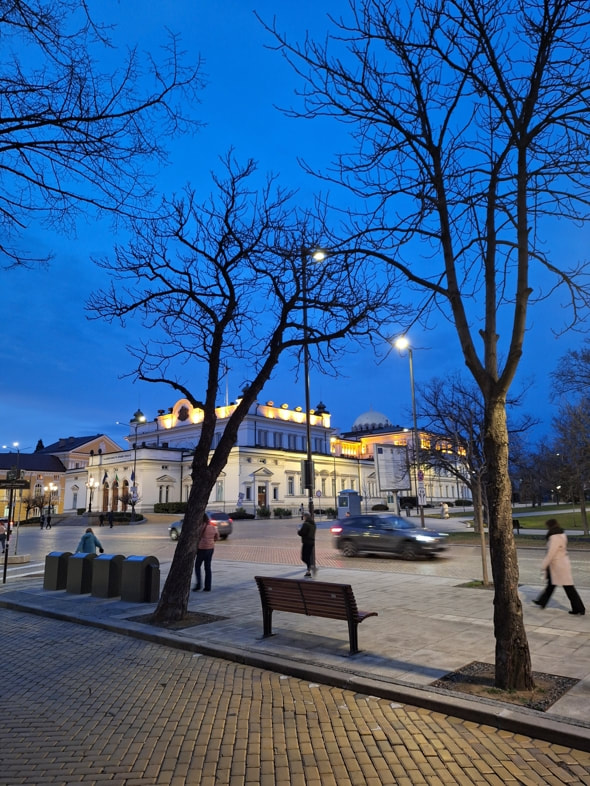

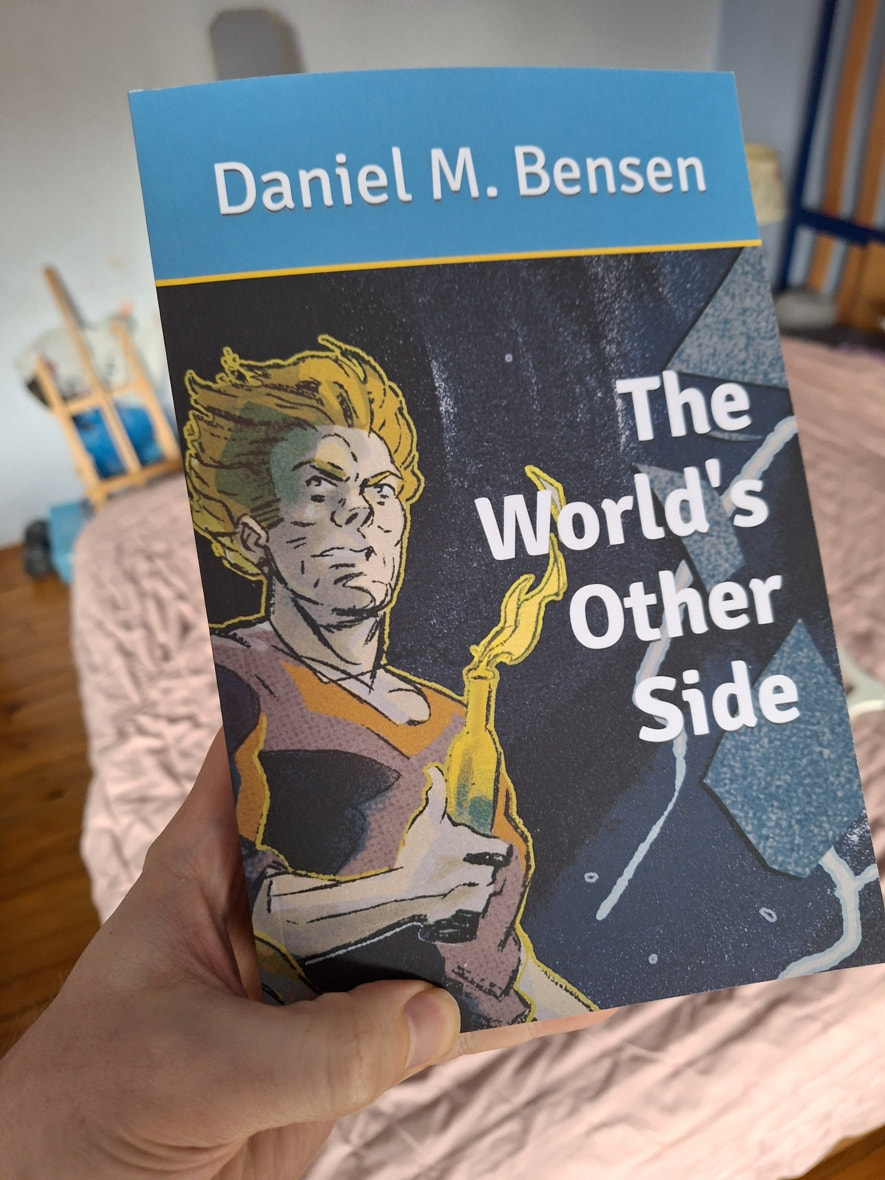

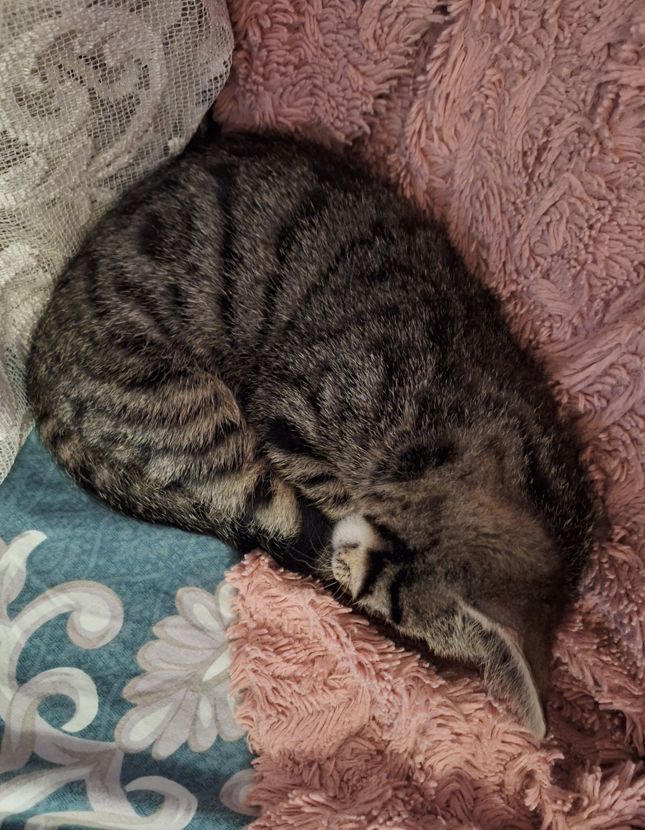
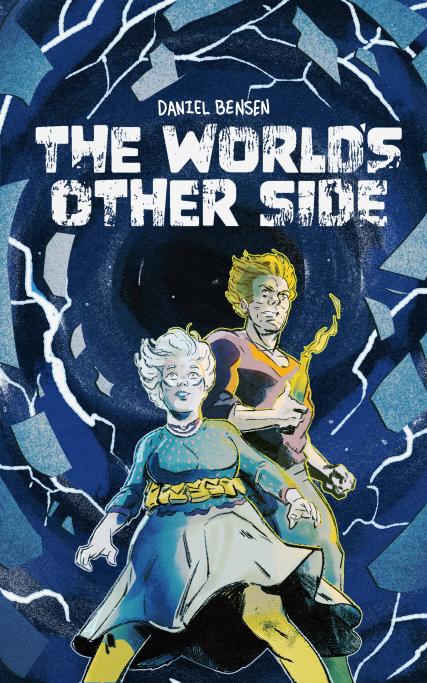

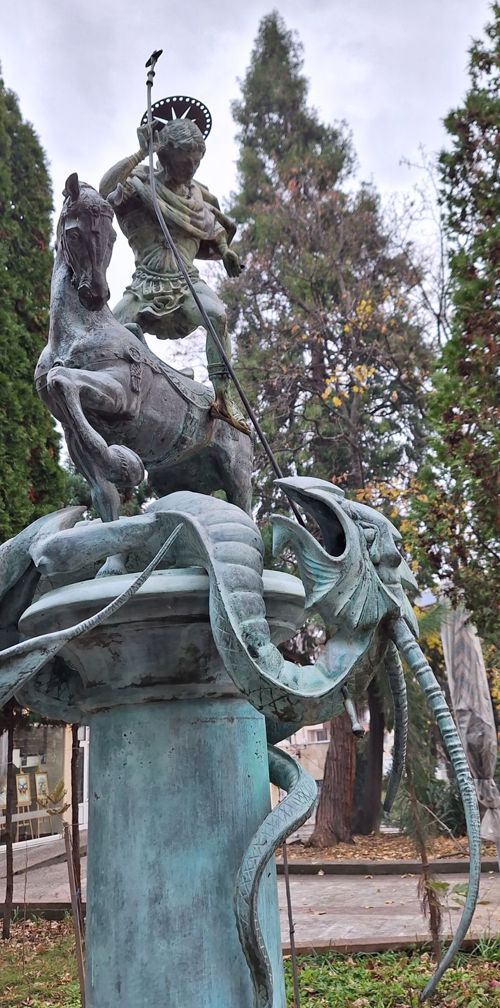
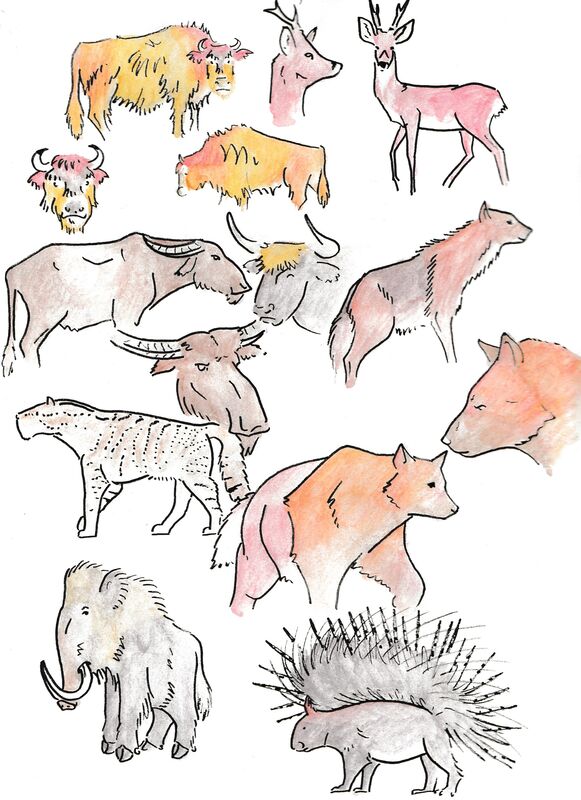
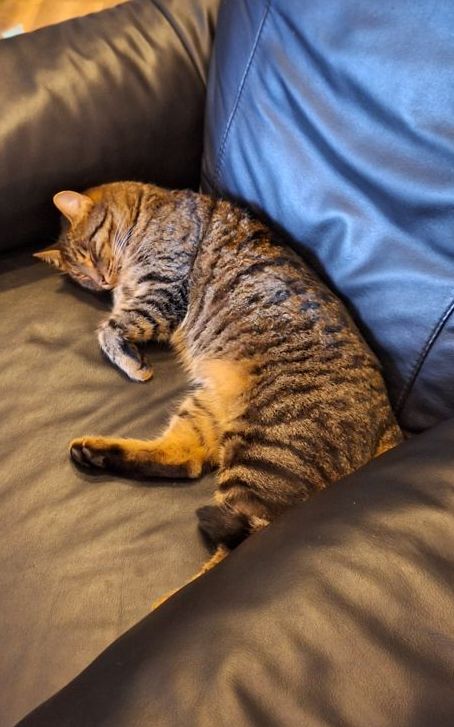

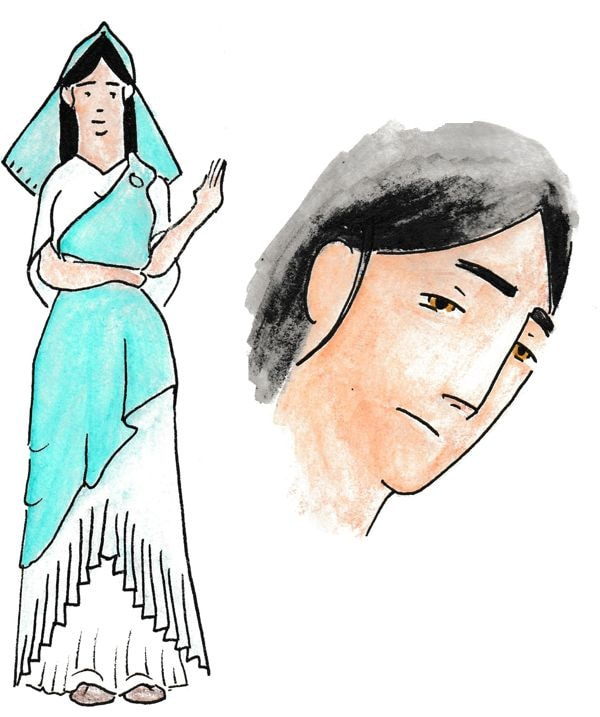
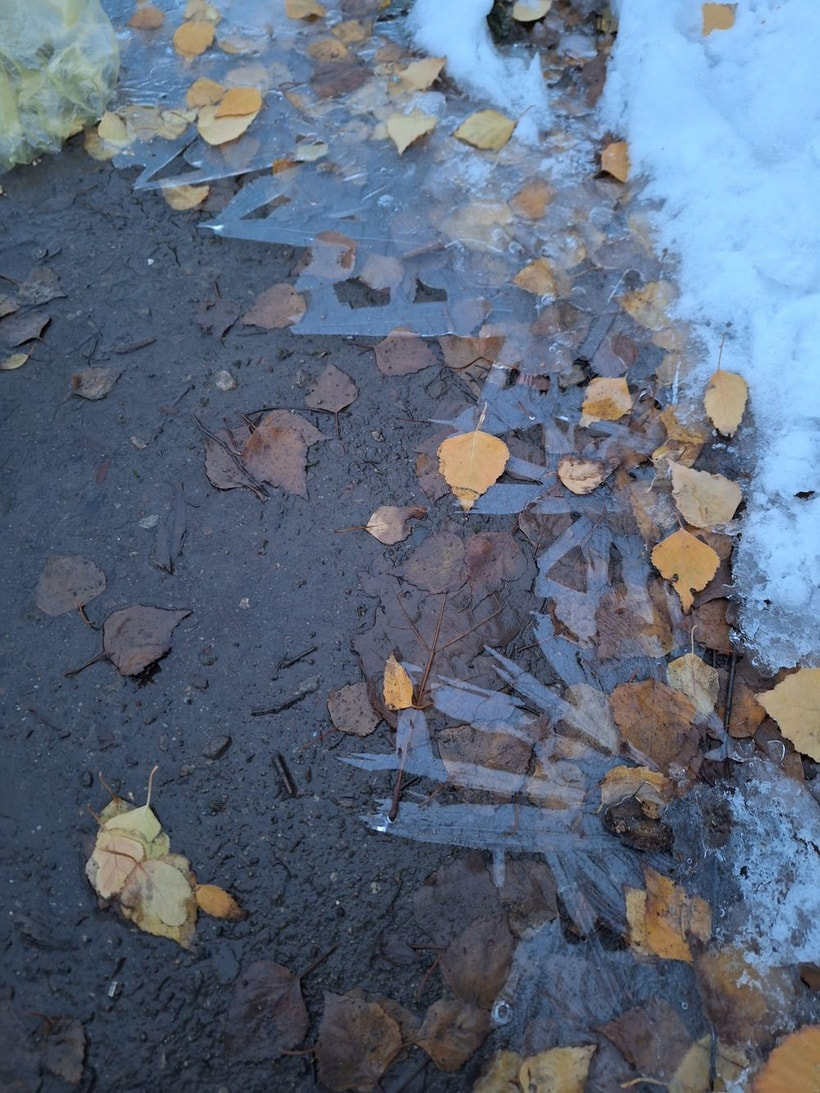

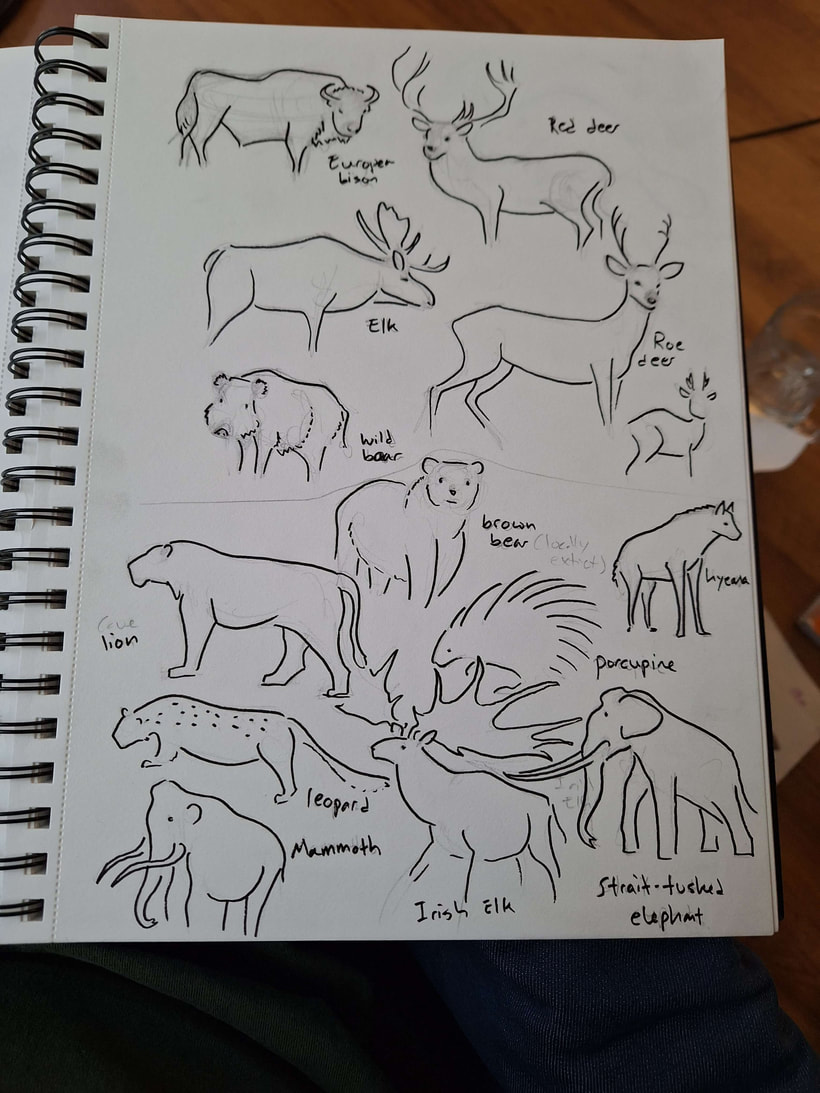
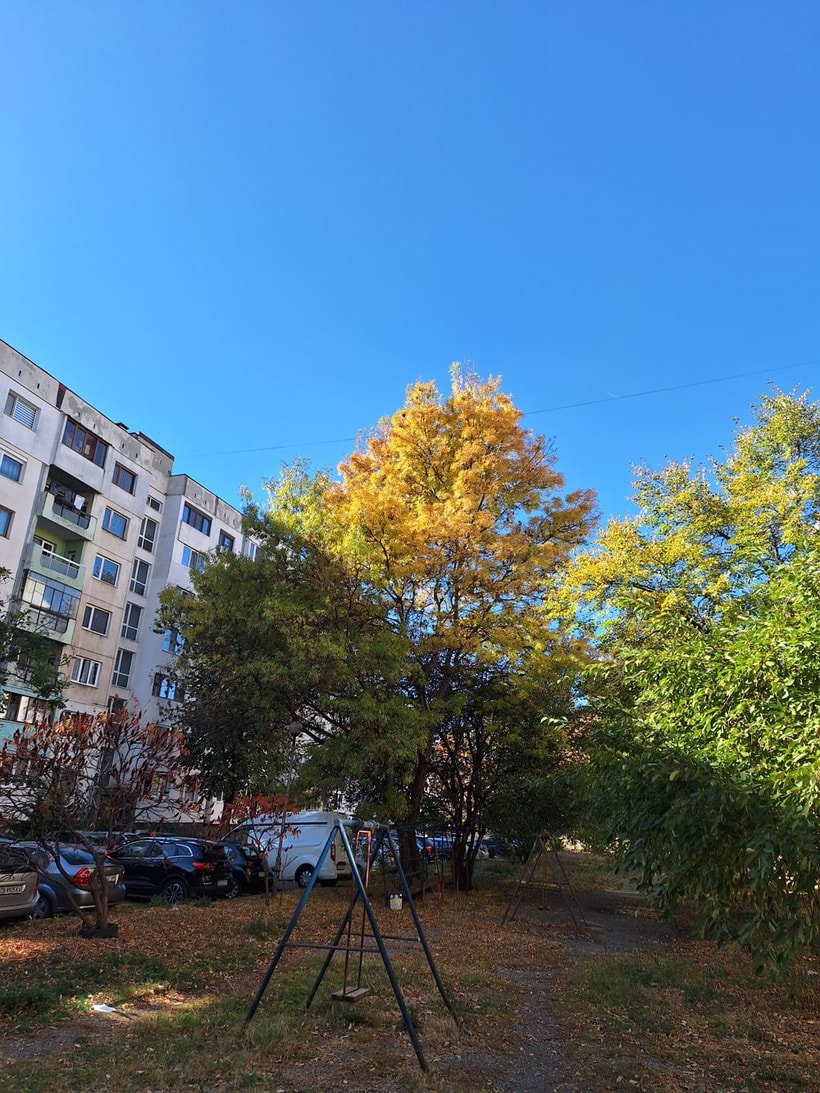
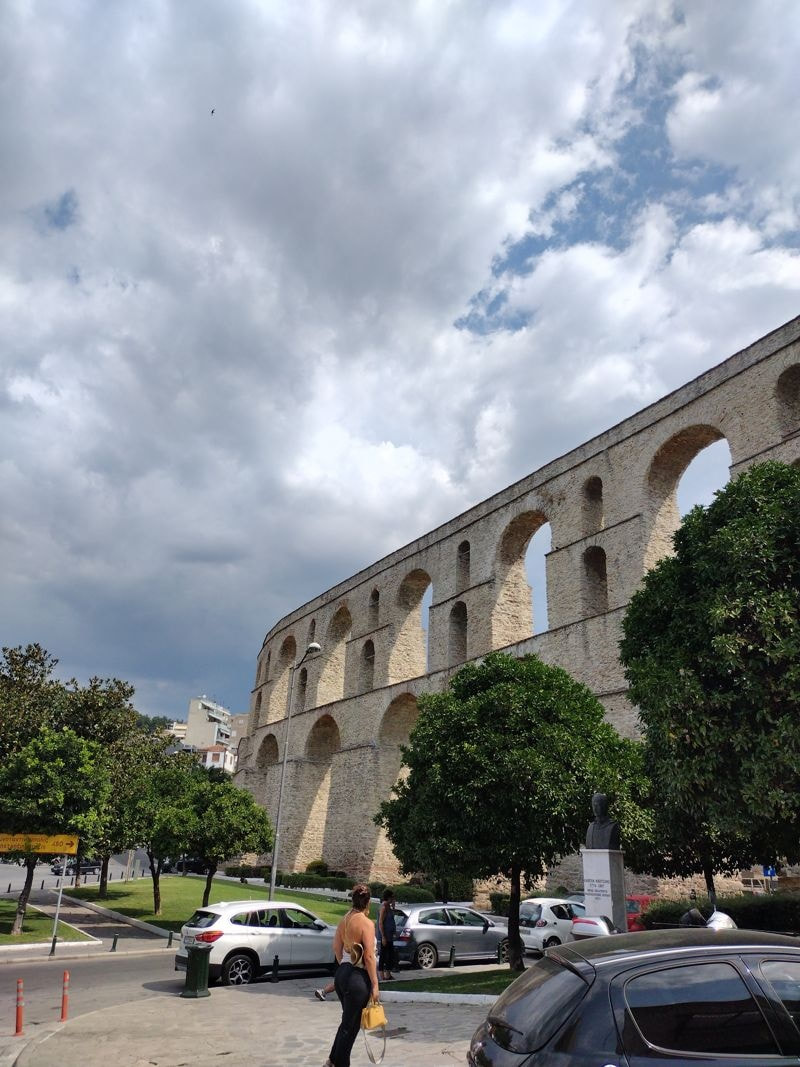
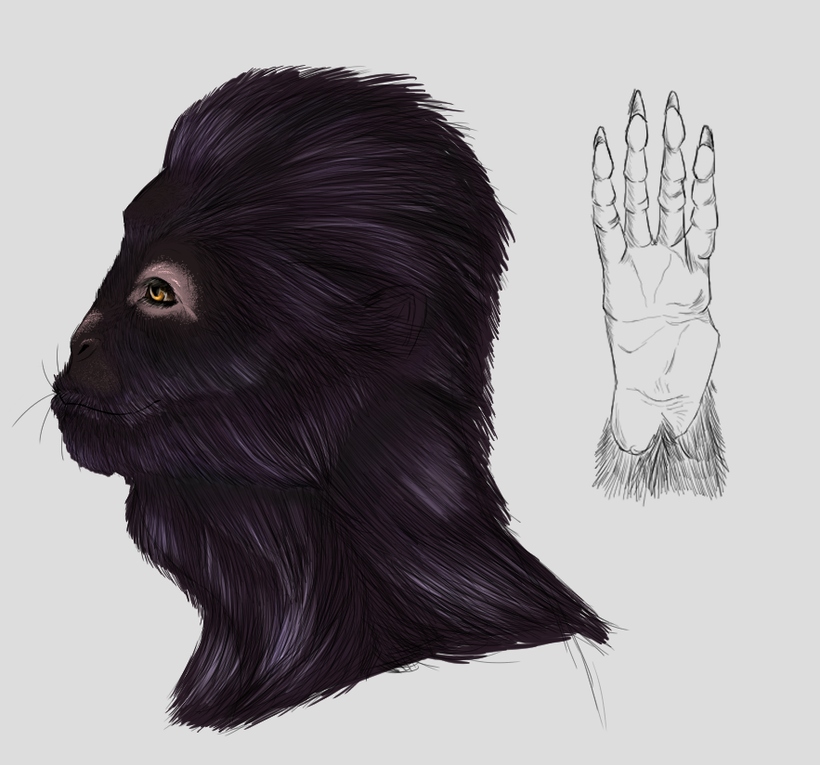
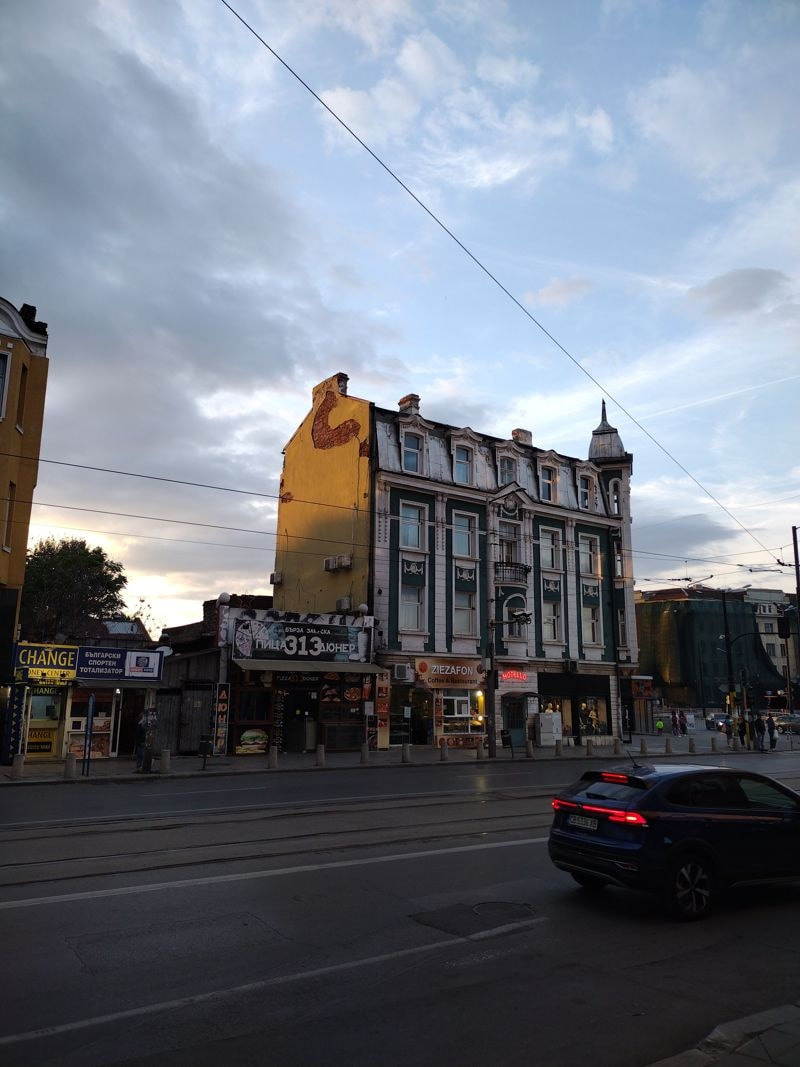
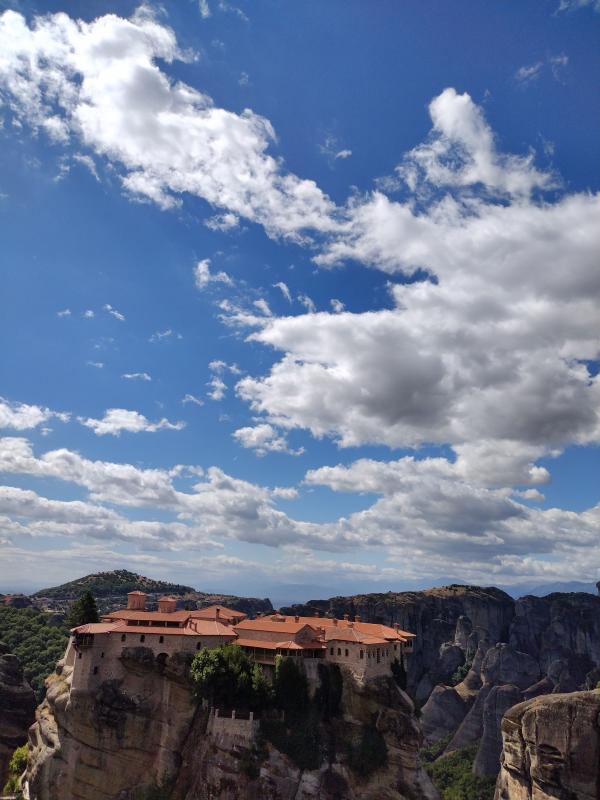
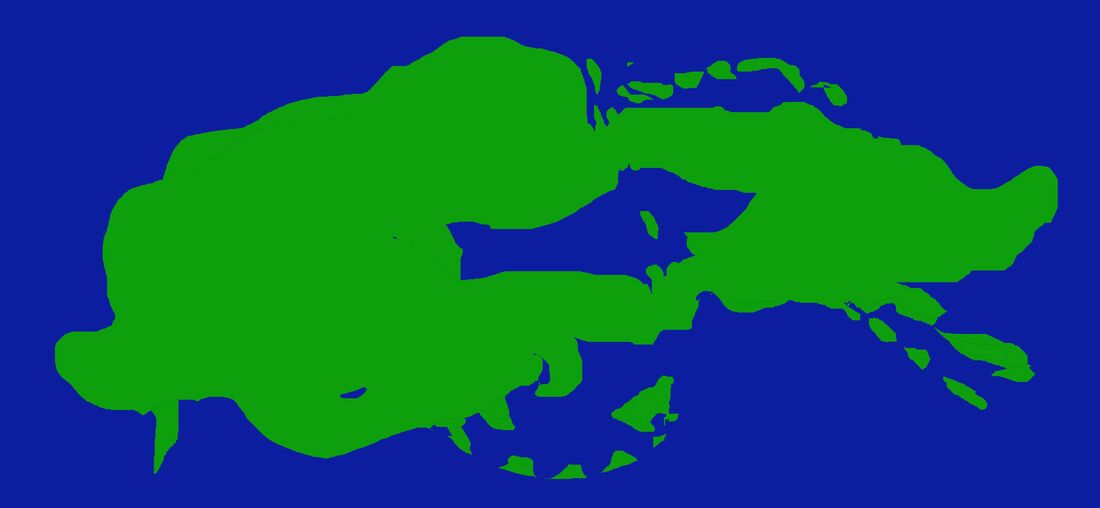
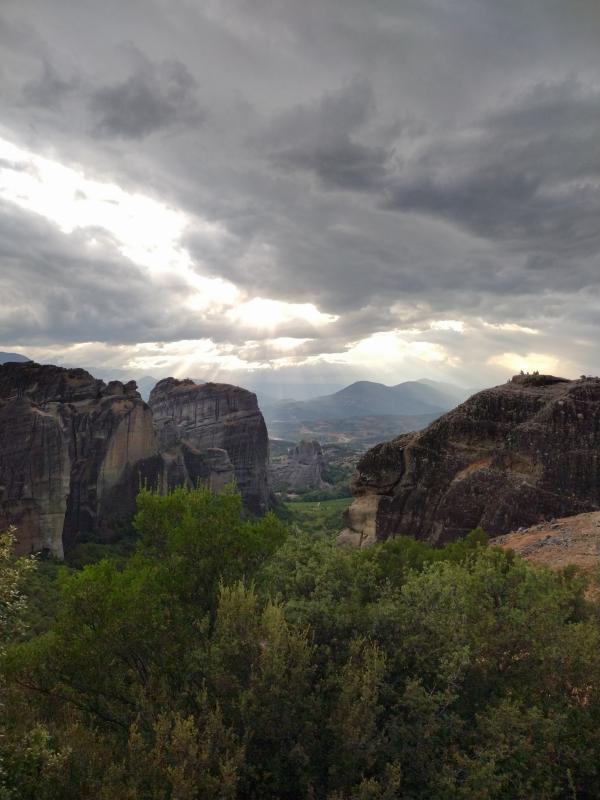


 RSS Feed
RSS Feed